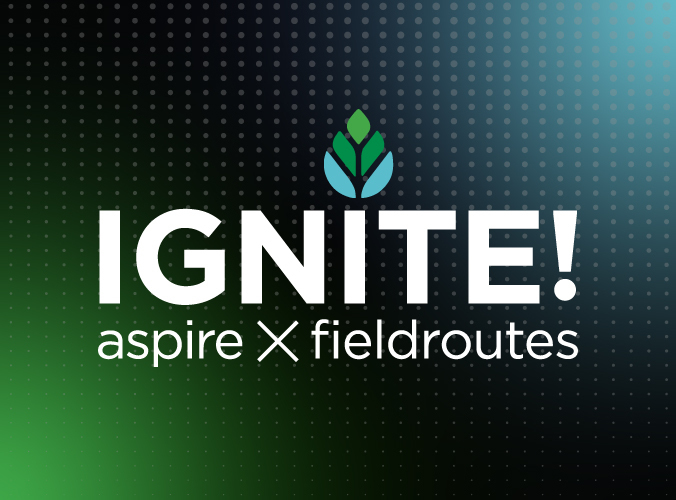2024 Pest Control Industry Trends (Stay Up To Date)

Success or stagnation in pest control businesses depends on whether owners strategize, adapt, and improve operations for long-term profitability.
Pest control business operators who understand evolving pest control methods, customer preferences, and technology advancements can better meet customers’ needs and profit from new business opportunities.
Know the challenges and opportunities driving the pest control industry to develop solid strategies for future-proofing your business and achieving sustainable growth.
The Current Pest Control Industry Landscape
The outlook for pest control services is bright, which is excellent news for those seeking to expand and grow their companies.
Statista reports that more than 34,000 pest control businesses operated in the U.S. as of January 2023 and were projected to generate $17.4 billion in revenue.
From 2018 to 2023, pest control industry revenue in the U.S. grew at a compound annual growth rate (CAGR) of 5.2%, according to the industry market research company IBISWorld. Market share concentration increased with mergers and acquisitions, and the top revenue-producing pest control companies include Ecolab, Rollins, Terminix, and Rentokil, according to Zippia.
Industry experts predict market growth for pest control providers.
“In the future, I really see it continuing to be strong, even through all the downturns we’ve had in the economy,” says consumer services consultant Brad Pitts in a recent FieldRoutes’ Field Famous podcast. “As long as you do it the right way and be a leader in the industry, you’re always going to grow.”
Key Drivers and Trends in Pest Control
To maximize opportunities in your pest control business, understand the underlying causes shaping the future of pest control.
Climate Change
Climate change affects pest breeding, life cycles, and prevalence, which increases human health concerns.
According to the World Mosquito Program, extreme weather patterns such as droughts, heat waves, floods, and rainfall provide favorable conditions for mosquitoes to breed and could contribute to the spread of mosquito-borne diseases.
According to the Environmental Protection Agency, warmer temperatures associated with climate change can accelerate mosquito development, biting rates, and the incubation of the disease within a mosquito. In 2023, residents in Florida and Texas saw locally transmitted malaria cases from mosquitos for the first time in 20 years, according to the Stanford Center for Innovation in Global Health.
And it’s not just mosquitos. Warmer temperatures can affect flea, tick, termite, and rodent populations, resulting in an increasing number of customers needing effective pest control solutions.
Sustainability and Environmental Concerns
More pest control companies offer sustainable pest control measures to target specific pests and protect the environment. These practices eliminate or deter pests while minimizing environmental harm.
Eco-friendly practices include:
Integrated Pest Management (IPM): IPM is an environmentally-sensitive approach to pest management. It combines data about pest life cycles and the pest’s interaction with the environment to minimize hazards to people, property, and the environment.
Environmentally-friendly pest control products: Biopesticides are derived from animals, plants, bacteria, and minerals. According to the EPA, they target specific pests, work effectively in small quantities, and are typically less toxic than conventional chemical pesticides.
Physical barriers, traps, and baiting: Physical barriers, such as screens and filling in cracks, keep pests out of areas. Targeted pest control methods using traps and baits reduce the harmful environmental impact of pesticides.
Biological pest control: Biological mechanisms use nature to manage pest populations. This includes utilizing ladybugs, beetles, and microbe-based solutions that eat or kill pests, which reduces pest populations.
Pest control companies can ensure long-term viability by providing responsible and sustainable pest control solutions.
Technological Advancements
Technology revolutionizes the way pest control businesses operate.
Technological advancements enable pest control professionals to automate pest monitoring, predict pest population outbreaks and behavior, and identify the most effective pest control methods.
Top technological advancements include:
Artificial intelligence (AI): Pest control businesses use AI to automate pest detection, monitoring, planning, and treatment. AI can collect data to identify and monitor pests for early detection. Using predictive modeling, AI can predict future pest infestations. It can also analyze data on pest behavior, environmental conditions, and historical infestation patterns.
Smart systems: Used alone or combined with AI, smart pest control devices use infrared sensors, cameras, and wireless technology. Smart systems provide real-time remote monitoring for early detection and accurate data, such as locating entry points. Some systems also trap or eliminate pests.
Drones: Professionals use drones to inspect pests, locate entry points, or spray agricultural pesticides. Using drones for pesticides requires a license from the Federal Aviation Administration and the state’s regulatory agency.
Pest identifier apps: Pest control apps help professionals quickly identify a pest, even in the larval stage. Accurate identification ensures a targeted, effective solution.
While technology requires an initial investment, it benefits your business and clients who seek new and effective pest control solutions.
Consumer Preferences
Changing customer preferences shape the future of pest control. Understand current trends to offer the services customers want.
Customer trends include:
Eco-friendly services: Customers seek pest control services that reduce harm to people, pets, and the environment. This includes organic and chemical-free methods.
DIY pest control: Many homeowners attempt to solve their pest problems with baits, traps, and smart devices.
Custom prevention plans: Customers don’t want to pay for extra services. Provide a range of specialized service plans to meet their needs and retain more customers.
Personalized service: Customers want pest control businesses to provide quality service, personalization, and convenience. With FieldRoutes® pest control business software, you can send customers automated communication by their preferred method and accept convenient online payments.
When businesses understand customer preferences, they attract new customers, retain their loyal clientele, and grow profits.
Challenges and Opportunities
Challenges in the pest control industry become opportunities for innovation and growth. Industry regulations, changing weather patterns, and the ever-increasing labor shortage all contribute to pest control business challenges.
Here are a few ways pest control professionals turn challenges into opportunities.
The challenge: Increased pest control regulations for businesses, operators, and pesticides. New regulations include the California Ecosystems Protection Act of 2023, which placed a moratorium on a specific type of rodenticide.
The opportunity: Expand into eco-friendly solutions and implement workflows for reporting required documentation. FieldRoutes’ pest reporting tools simplify wood-destroying organisms (WDO) reporting for pest control in all states, including California Branch 3. Its Sentricon® system integration streamlines inspections, renewals, and monthly reporting.
The challenge: Increased pests or the emergence of new pests due to warmer temperatures.
The opportunity: Ramp up services, which may mean additional training or hiring, to combat growing pest infestations. Market new services, such as mosquito or tick control, so potential customers know what you offer and how it will protect their property, family, or employees.
The challenge: Finding quality technicians in the current labor shortage.
The opportunity: Implement technician training programs to train new hires who may not possess pest control experience. Offer competitive wages, flexible hours, and other benefits to attract employees. Consider offering incentives for employee referrals to boost your hiring pool.
Pest control professionals who seek to improve operations and the quality of service will increase customer satisfaction and promote business growth.
Strategies for Success
Future-proofing your business requires strategic planning. Ask yourself what you aim to accomplish and what tools will help you get there. Perform market research to determine what will set your business apart.
Strategic ideas for success include:
Automate operations: Increase efficiency and profit using FieldRoutes to centralize, integrate, and automate your business. User-friendly tools optimize routes to save time and fuel costs, enhance communication with your team and customers, and provide real-time insight into business performance.
Diversify services: Offer an array of services to meet various customer needs. This may mean broadening your services, offering new pest control solutions, or expanding into a new service vertical.
Invest in training: Provide training on your business processes, customer service, and sales. Consider providing technicians with educational resources for pest control certifications and qualifications in specialized areas.
Form partnerships: Identify ways to connect with other business professionals in your community. This could include networking with local business groups and forming professional partnerships with real estate agents, property managers, and vacation rental owners.
Focus on marketing: Improve your website, online business listings, and advertising to benefit from local search engine optimization. Ask customers to leave positive online reviews. Update truck wraps on business vehicles. Use email and direct mail to send targeted messages to potential customers.
Evaluate your business regularly to improve operations and performance continually.
Invest in the Right Technology for Your Business
Pest control professionals who have an eye for the future know they need to improve operational efficiency to successfully scale their businesses.
FieldRoutes provides an all-in-one solution to streamline operations and accelerate growth. Save time with automated scheduling, routing, billing, and payment reminders. See how your business performs in real time and make proactive improvements for future stability and growth.
Schedule a demo to see how FieldRoutes transforms business.





